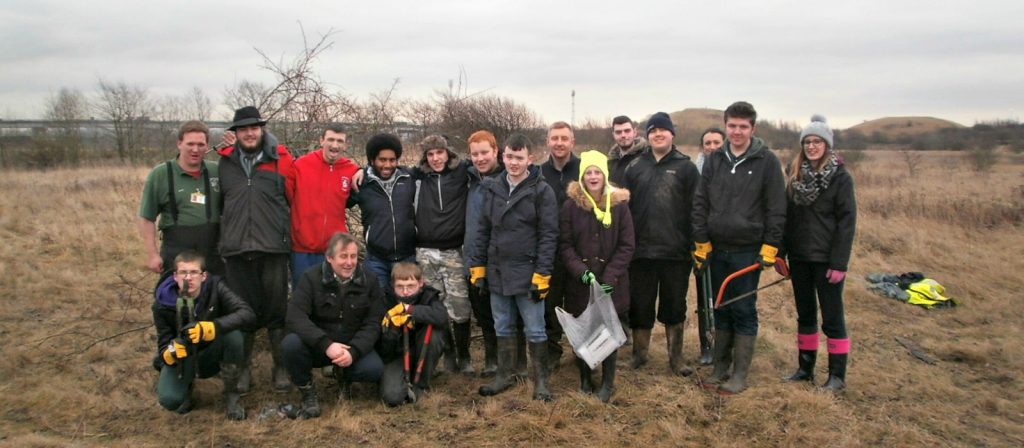Looking for something different to do with your pupils – have alook at our new One Planet Pioneers leaflet.
Outdoor Learning leaflet TVWT final.
Opportunities with the Tees Valley Wildlife Trust Key Stage 3 and 4
For regular information about what we offer sign up for our newsletter here.
Your school or college field trip
What we offer:
- A safe and secure learning environment
- A range of interesting habitats and landscapes
- Field equipment, books, guides and techniques
- A programme linked to your curriculum
- Experienced staff who are DBS checked and know the site
- Risk Assessments for all activities.
What does it cost?
£6.50 per student for a full day (minimum donation for group £160)
£3.50 per student for a half day (minimum donation for group £80)
You and your students get the benefits of a great field trip and the satisfaction of supporting a local conservation charity at a very reasonable cost.
KEY Stage 3 Science
Visit one of the Tees Valley Wildlife Trust nature reserves and explore the habitats found there. Activities will aim to evoke students’ curiosity about science in the natural world using real world learning as they are guided through a scientific enquiry. Working together to plan their method, use fieldwork techniques to collect data, analyse their data, present their findings to the rest of the group and evaluate their study. In addition to the working scientifically students will appreciate key biological concepts, develop personal/socials kills and engage with the environment around them.
Key Stage 4 Science/Biology
This course presents students with opportunities to use their knowledge and understanding to pose scientific questions and plan and carry out outdoor, investigative and practical enquiry based on one of the Tees Valle Trust Nature reserves. To develop students understanding of “How Science Works” and the scientific process, investigations can be based around the following:
- Pollution
- Classification and Diversity
- Adaptations
- Distribution of organisms
- Understanding our Environment
- Interdependence and Adaptations
- Biodiversity
Examples include:
Populations, Communities and Ecosystems in Freshwater Ponds
Using survey nets and other techniques catch and identify a range of freshwater species. Record the quantities of different species, determine their diets and construct a food chain or food web. Study their adaptations to their environment in terms of feeding, breathing and movement. How do they get their energy and nutrients?
Grassland or woodland surveys
Identify and record a range of species of plants that are present in an area of flower-rich grassland or woodland. Use a range of subjective or objective methods to measure frequency and abundance such as scales and quadrats. Compare and contrast two areas. Why is there a difference and how can you test your hypothesis?
Plant reproduction, pollination and dispersal (weather permitting)
Observe, identify and take measurements of a range of different plant types in terms of their flower structure and how they are pollinated and their seed forms and how they are dispersed. How are the different plant species adapted to their environment?
Rivers and Streams
Discover how rivers and streams have shaped the local landscape: consider geology, rainfall, catchment; investigate flow rates, depths, sediments, biodiversity; discuss natural and man-made features which relate to flood control, abstraction and use of water resources. Calculate a biotic index of water quality and pollution.
All programmes are delivered by Tees Valley Wildlife Trust Outdoor Learning team and we provide all equipment, risk assessments, work sheets and primary and secondary data to allow pupils to complete a unit.
We can adapt sessions to fit in with your existing work, just give Steve a ring on 01287636382 or email [email protected] to discuss your requirements.
Developing school or college grounds
- Biodiversity index to assess the existing site
- Conservation work to improve an existing area
- Creating a scaled plan of the area to be developed
- Creating new habitats including: Orchard, Insect Hotels, Living Willow Structures e.g. dome or tunnel, Meadow, Woodland, Hedgerow.
Bush Craft and Shelter building
- Tool use for green woodwork using elder, hazel and willow
- Shelter building using tarps and ropes and natural materials•
- Natural fire lighting and cooking on a fire.
Forest Schools
The Forest School learning environment provides opportunities for children to develop self-esteem, self- confidence, to form positive relationships with others, to develop a growing awareness of their emotional needs and the needs of others, to learn to cooperate and work with their peers and adults and develop strategies in order to take risks within the boundaries of safety. The setting allows the children to engage with the natural environment. Forest School is about exploring and experiencing the natural world through practical activities. The children go out in all weathers, all year round, exploring and learning from the four seasons and environment changes. The children’s interest along with the varied natural resources in our woodland are used to stimulate creative thinking, problem solving and skill development, all in the guise of play. Most of the activities are child-led but of course some activities are planned by the forest leader. Sessions cater for a variety of learning styles and give pupils the chance to develop a range of skills. Forest School can also be used to smooth transition from primary to secondary school. Tees Valley Wildlife Trust can offer a range of sessions for you school ranging from taster activities to full forest schools programmes.
John Muir Award
The John Muir Award aims to encourage people of all ages and backgrounds to discover, enjoy and care for the planet’s wild places in a spirit of fun, adventure and exploration.
Our experienced John Muir leaders provide a varying level of support from one-off practical conservation days to taking care of everything needed to achieve your award. We provide 5, 10 or 20 day programmes that immerse you in the landscape.
Discover a wild place.
Explore its wildness through nature walks, fossil hunting, living history re-enactment, habitat investigations, bog bouncing, storytelling and sensory activities.
Conserve it through practical management activities.
Share your own interpretation of the landscape using creative writing, art, music and drama.
Practical Conservation Tasks
We can arrange guided, practical conservation days at many of our nature reserves. Activities will vary depending on the site and time of year.
Full day £200

